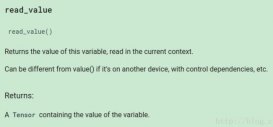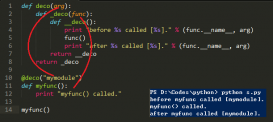Python是一門弱類型語言,很多從C/C++轉(zhuǎn)過來的朋友起初不是很適應。比如,在聲明一個函數(shù)時,不能指定參數(shù)的類型。用C做類比,那就是所有參數(shù)都是void*類型!void類型強制轉(zhuǎn)換在C++中被廣泛地認為是個壞習慣,不到萬不得已是不會使用的。
Python自然沒有類型強制轉(zhuǎn)換一說了,因為它是動態(tài)語言。首先,所有對象都從Object繼承而來,其次,它有強大的內(nèi)省,如果調(diào)用某個不存在的方法會有異常拋出。大多數(shù)情況,我們都不需要做參數(shù)類型栓查,除了一些特殊情況。例如,某個函數(shù)接受一個str類型,結(jié)果在實際調(diào)用時傳入的是unicode,測試過程中又沒有代碼覆蓋到,這樣問題就比較嚴重了。解決方法也很簡單,借助Python的內(nèi)省,很容易就能判斷出參數(shù)的類型。但是每個地方都寫檢查代碼會很累贅,何況它帶來的實際價值并不高。一個好的解決方法是使用裝飾器。
|
1
2
3
4
5
6
7
8
9
10
11
12
13
14
15
16
17
18
19
20
21
22
23
24
25
26
27
28
29
30
31
32
33
34
35
36
37
38
39
40
41
42
43
44
45
46
47
48
49
50
51
52
53
54
55
56
57
58
59
|
''' >>> NONE, MEDIUM, STRONG = 0, 1, 2 >>> >>> @accepts(int, int, int) ... def average(x, y, z): ... return (x + y + z) / 2 ... >>> average(5.5, 10, 15.0) TypeWarning: 'average' method accepts (int, int, int), but was given (float, int, float) 15.25'''def accepts(*types, **kw): """ Function decorator. Checks that inputs given to decorated function are of the expected type. Parameters: types -- The expected types of the inputs to the decorated function. Must specify type for each parameter. kw -- Optional specification of 'debug' level (this is the only valid keyword argument, no other should be given). debug = ( 0 | 1 | 2 ) """ if not kw: # default level: MEDIUM debug = 1 else: debug = kw['debug'] try: def decorator(f): def newf(*args): if debug == 0: return f(*args) assert len(args) == len(types) argtypes = tuple(map(type, args)) if argtypes != types: msg = info(f.__name__, types, argtypes, 0) if debug == 1: print >> sys.stderr, 'TypeWarning: ', msg elif debug == 2: raise TypeError, msg return f(*args) newf.__name__ = f.__name__ return newf return decorator except KeyError, key: raise KeyError, key + "is not a valid keyword argument" except TypeError, msg: raise TypeError, msgdef info(fname, expected, actual, flag): """ Convenience function returns nicely formatted error/warning msg. """ format = lambda types: ', '.join([str(t).split("'")[1] for t in types]) expected, actual = format(expected), format(actual) msg = "'%s' method " % fname \ + ("accepts", "returns")[flag] + " (%s), but " % expected\ + ("was given", "result is")[flag] + " (%s)" % actual return msg |
本質(zhì)上講,這也是一種運行時檢查,但效果已經(jīng)不錯了。
更多有趣的裝飾器的使用,可以參考這篇文章http://wiki.python.org/moin/PythonDecoratorLibrary















